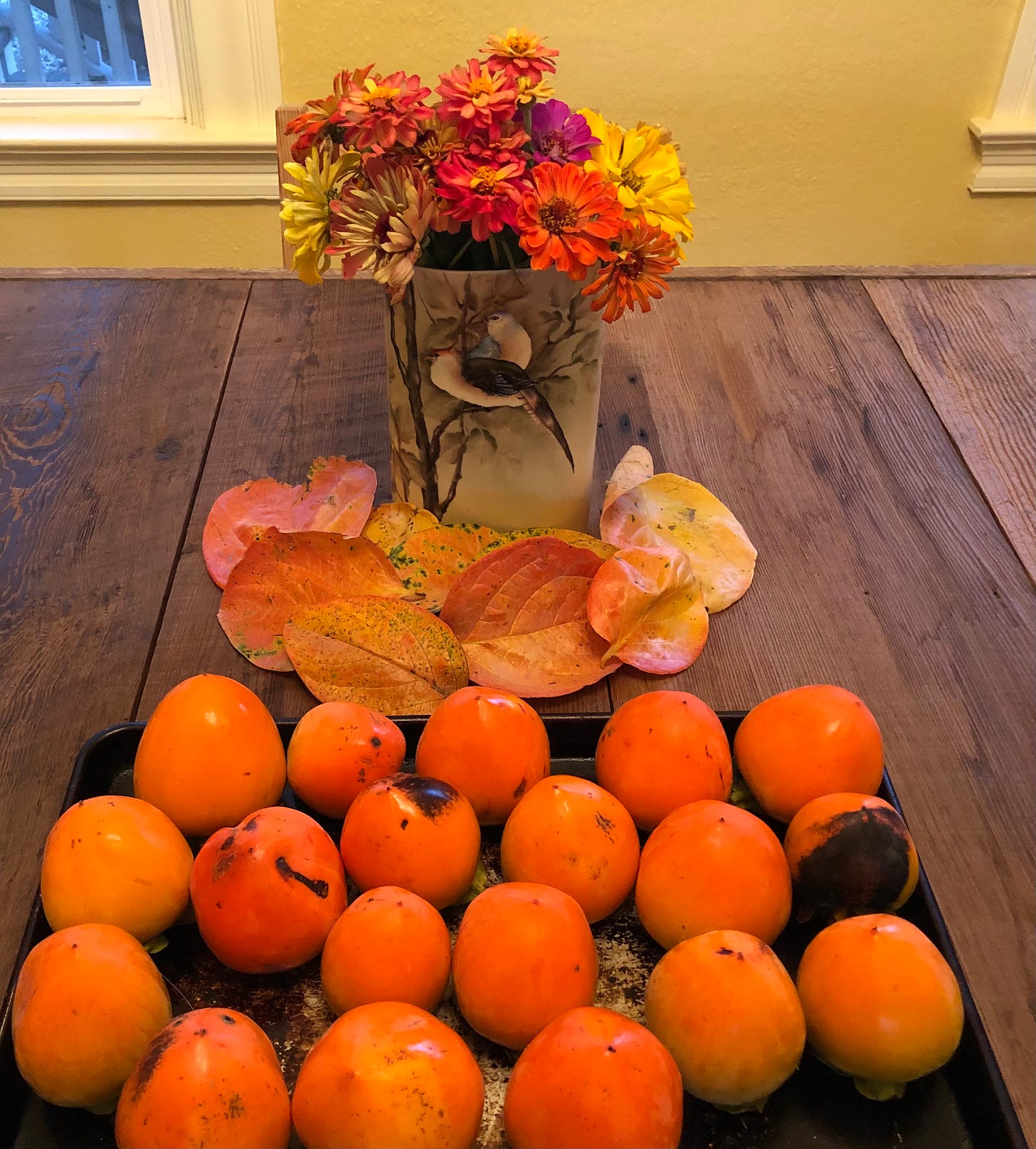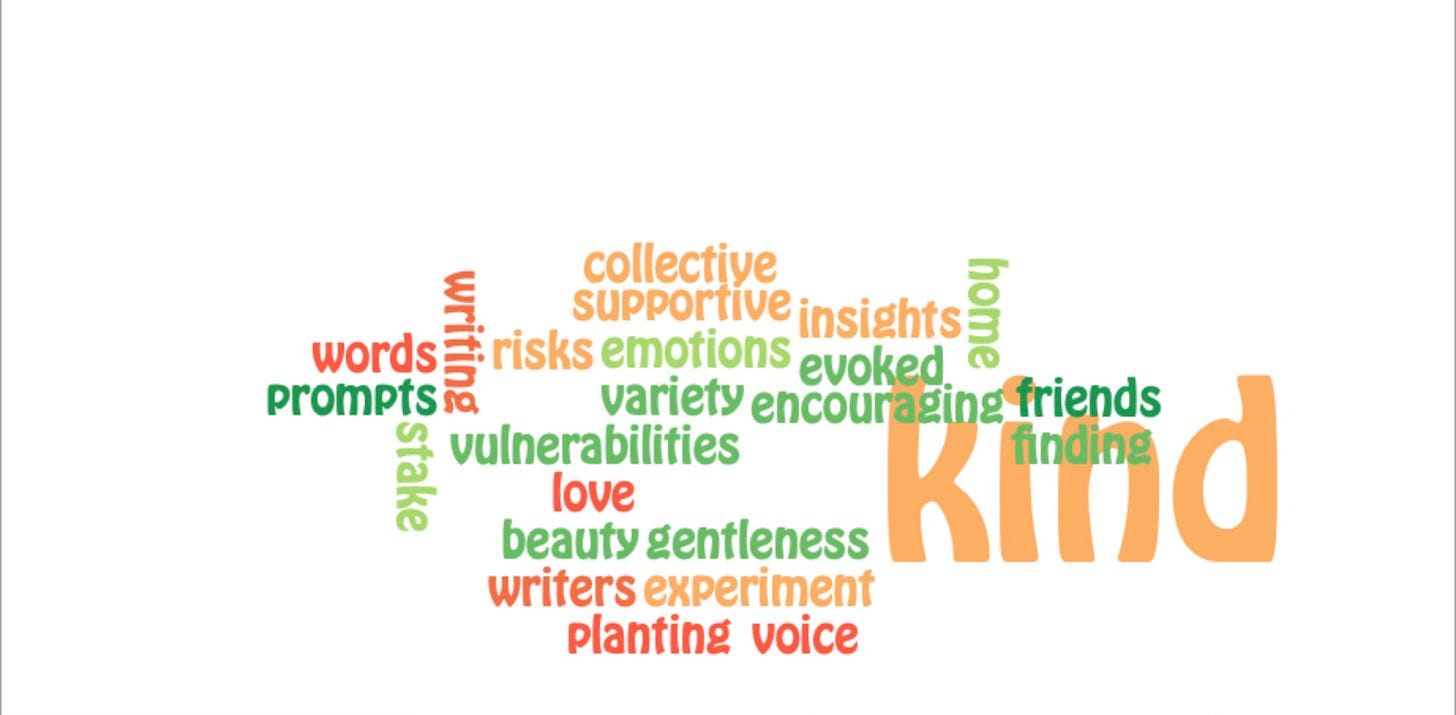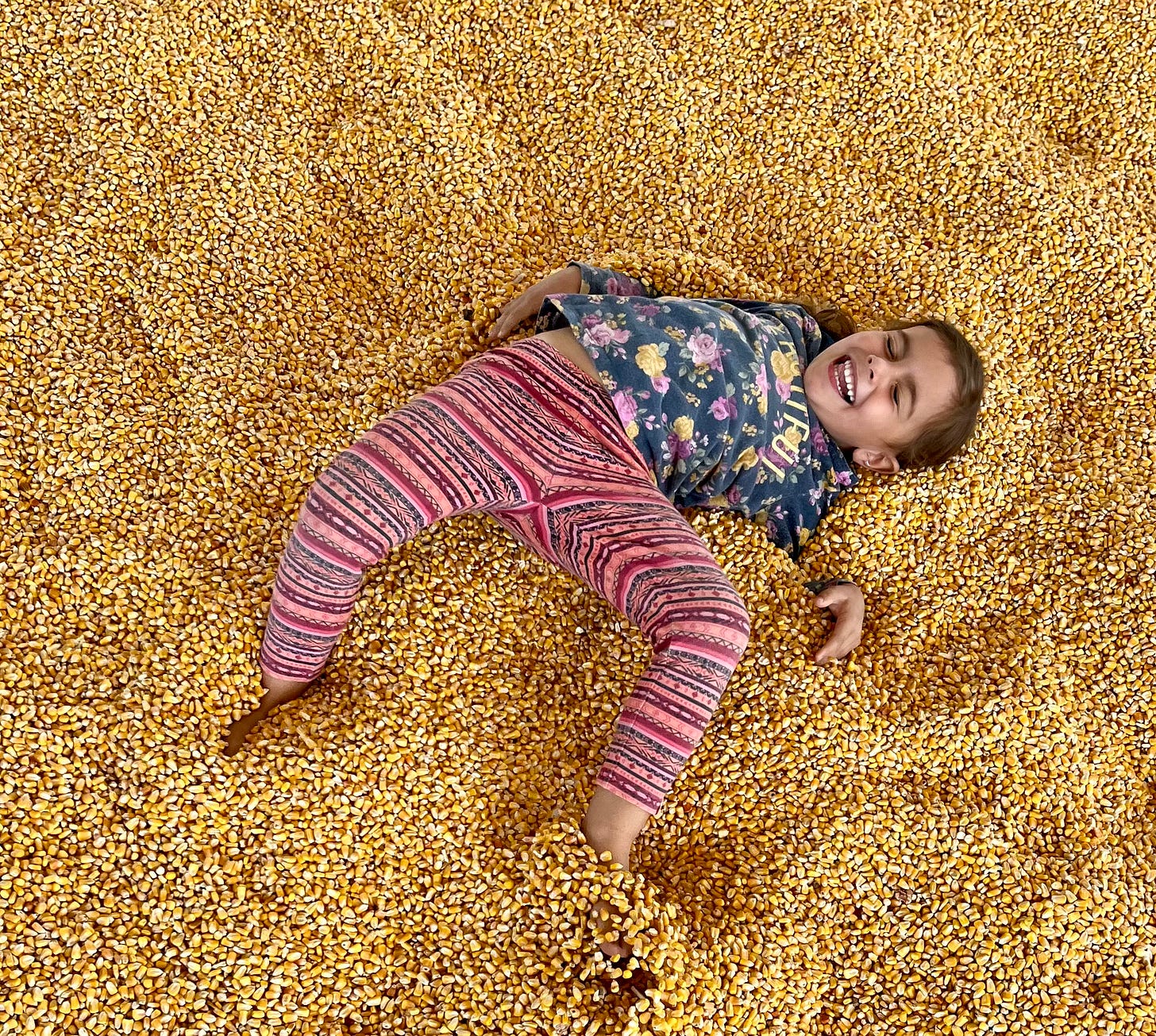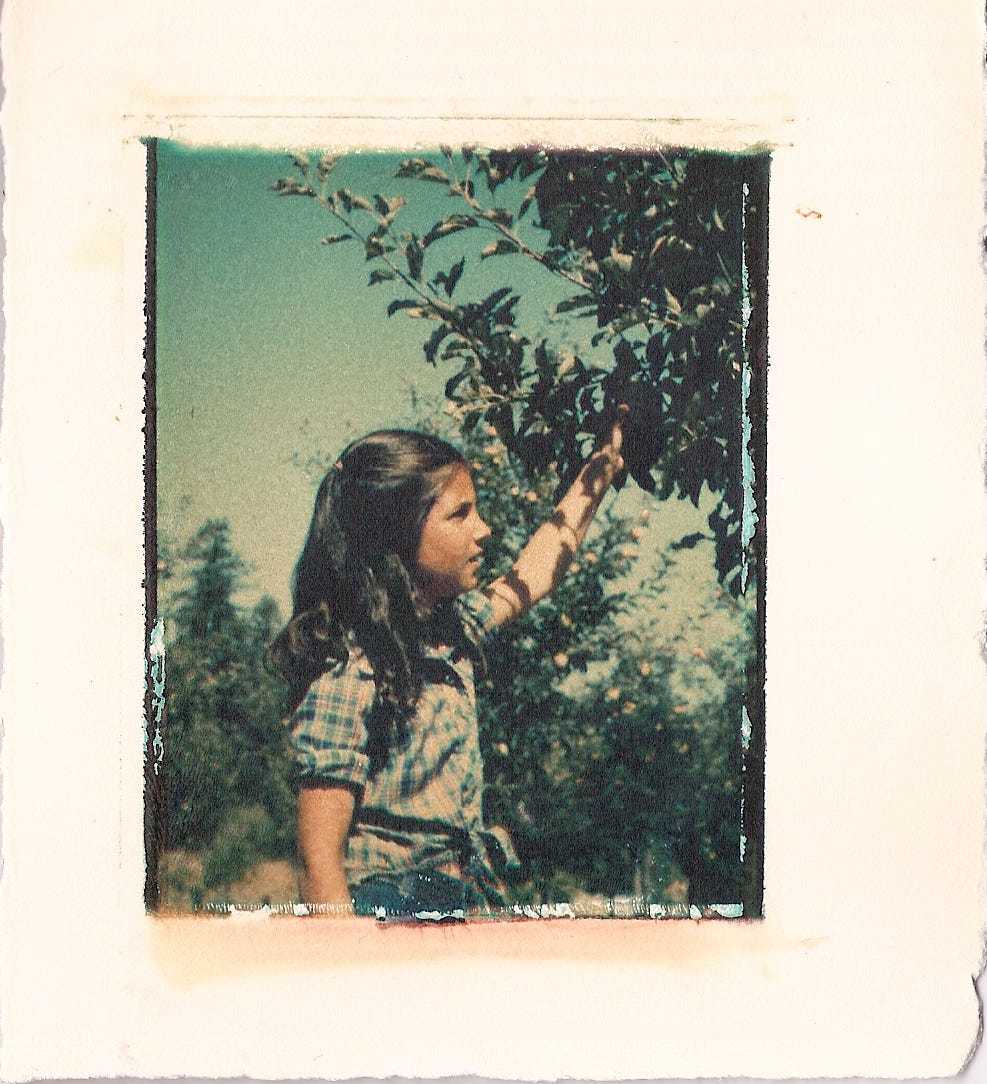In this issue: writing prompts & testimonials; workshop pop-ups & new January series; trauma transformed into art; tending the inner child; celebrating joy, and more!
what's pressing on your heart?
I borrowed that line as a workshop prompt, based on a similarly titled session hosted by Amherst Writers & Artists (AWA) in mid-October. What’s Pressing on Our Hearts offered a space for anyone feeling distress over atrocities in the Middle East to write together in community. The prompt sparked poignant writing in my own women’s workshop series, including storytelling and poems that pierced the heart.
Try it: set a timer for 3 to 20 minutes and let your pen release whatever you’re holding.
workshop pop-ups: 3-hour session & 3-week series
I’m offering Tuesdays for women & nonbinary writers as a bridge between holidays:
Thanks, I Guess Nov 28, 10am–1pm PST ($60)
Take stock of what you’ve got — or wish for — in this post-Thanksgiving 3-hour workshop. We’ll use its title, borrowed from the Herstry blog’s November issue, as a refrain, a lament, or an ironic twist on gratitude. Invite your writing to the page as we experiment with a variety of prompts to spark creativity and wordplay. We’ll follow the AWA method, using positive and reflective group feedback as encouragement.
Illuminations: Writing Toward Winter Solstice Dec 5, 12 & 19, 10–11:30am PST ($75)
How do we hold the weight of the world’s sorrows while simultaneously embracing its wonders? We’ll explore these contradictions — or anything else that arises — during this 3-week series, gently held between Thanksgiving and Christmas while Hanukkah, aka the Festival of Lights, illuminates our way toward the winter solstice. Using a variety of prompts to spark our creativity and contemplation, let’s discover and delight in whatever shimmers on the page during the month of December.
We’ll spend the first hour of each 1.5-hour session writing together, then end with “open mic” time for anyone who wishes to read their discoveries aloud. Rather than provide any feedback, we’ll simply listen. According to the Amherst Writers method:
We listen to others’ writing with openness. We leave our own assumptions and anecdotal experiences behind, allowing ourselves to enter the world that has been created.
If you’re on my workshops list, check your email for Eventbrite invitations to register. If you’re new to me, please email or fill out an Inquiry Form (scroll down web page).
transforming trauma into art
Ellen Bass, celebrated American poet and co-author of The Courage to Heal, delivered the above-titled keynote at this year’s professional development and writing retreat for AWA-certified workshop leaders, held in October. She deconstructed poems by Anne Sexton, Natasha Trethewey, Ocean Vuong, Lucille Clifton, among others.
She also provided writing exercises such as:
Write a poem that is entirely, or almost entirely, a list of metaphors to describe a traumatic experience, modeled on Yusef Komunyakaa’s 1988 poem, “You and I Are Disappearing.”
Inspired by his experiences in Vietnam as a soldier and a war correspondent, it begins:
The cry I bring down from the hills
belongs to a girl still burning
inside my head.
I attended two informative & inspirational online sessions on writing as social justice:
Leading workshops with survivors of sexual assault, led by Mary Simmerling, PhD, whose poem “What I was wearing” went viral and inspired survivor art installations on the theme nationwide
Writing for mental health for teenage girls, led by Elizabeth Perlman, along with AJ Hershman and Carla Hanson
Each session led to opportunities for me to partner with two nonprofit organizations in 2024. I was invited to co-facilitate caregiver workshops for staff and volunteers of RAINN (Rape and Incest National Network), and to develop and lead a workshop for LGBTQIA+ Youth at The Intuitive Writing Project, a writing-based empowerment program for girls and gender-expansive youth, ages 8-18.
It is often said that while our writing workshops aren’t therapy, the process of writing, sharing, listening, and hearing the strengths in our writing reflected back is therapeutic. As workshop leaders we aren't healers, but we can facilitate in a way that invites healing and celebrates the human capacity to heal in community.
new year, new start: new workshops
With two 8-week workshop series recently completed, I have three more scheduled to start in the first week of January. My Thursday group filled quickly with ongoing writers, but there are spots open on Tuesdays or Wednesdays. Here’s what a couple of participants said about Writing From Memory or Imagination:
“I had such a blast writing with you and the group! You hold beautiful space for brave writing.” — Jessica W.
“These sessions—like all the previous ones—have been productive, reassuring, and a genuinely beautiful space to be in.” — Kim D.
I created this word collage based on comments shared in a closing circle:
Read writers’ recent responses to prompts, including Attention and Breathe.
presence, compassion, power
Last month I received wonderful feedback from a 2-hour workshop session I’d facilitated for Write Around the World, an annual fundraiser supporting AWA’s social justice programs. Discovering Your Inner Child included prompts (see below) to access the wonder, creativity, and imagination of the child within, as well as tend to the wounded inner child, allowing whatever arises when we are free to write expressively.
Five out of six participants ranked the session as “excellent.” Anonymous responses from the exit survey about the quality of the workshop and facilitation included:
“I really enjoyed Nicole’s grounded presence and warmth.”
“Phenomenal: compassionate, articulate, supportive, inspiring”
“Great focus on what really emotionally punched, the power of each of the pieces, great specific references to the language. Masterfully coordinated comments and folding everyone into the conversation and creative exchange.”
“Nicole’s prompts called me to respond to a deeper level of vulnerability.”
tending to the child within
The aforementioned workshop drew from my own healing journey as a recovering Codependent and ACA (Adult Child of Alcoholics/Dysfunctional Families). I adapted material from The Loving Parent Guidebook and John Bradshaw’s HomeComing: Reclaiming and Championing Your Inner Child. Exercises included handwriting with the non-dominant hand, letter writing to and from an inner child, and using affirmations.
“I heard simple answers without the intrusion of my inner critic. My responses, while not particularly profound, were testimony to the fact that I was in the room, I was indeed the writer, & it was worth my effort to slow down & listen to my voice in my words on the page.”
Try it:
Write about anything that brings joy or contentment to the child inside you.
Start with “I love…”
“Love sorrow. She is yours now, and you must take care of what has been given.” — from “Love Sorrow” by Mary Oliver, published in Red Bird poetry collection
Write from the sorrowful inner child or angry, rebellious inner teen
Write with all the tenderness you’d shower on a child that you love more than life itself. Begin with the words, “Dear One, I want you to know…”
Write a list of affirmations, such as: “You don’t need to strive. You are already enough.” — adapted from The Loving Parent Guidebook
artist residency: joyful congrats
The Spruceton Inn, a Catskills “bed & bar,” announced its 2023 Artist Residents, selecting 17 novelists, painters, journalists, poets, performers, illustrators, photographers, and kids’ book writers among nearly 400 applicants. Unfortunately, my name wasn’t among them. However, I was excited to see that my neighbor, Joy Lanzendorfer—novelist, journalist, and fellow recipient of Creative Sonoma’s 2019–20 Discovered Award for Emerging Literary Artists—won a 5-night stay in November!
Author of the novel Right Back Where We Started From, Joy was also a 2022 awardee of a Courage to Write grant (applications open Jan. 7) from the de Groot Foundation for her novel in progress, The Bath School Disaster. Last month Joy got her first byline in The New Yorker where you can read about the Beat poet Lenore Kandel, whose erotic poetry collection, The Love Book, led to San Francisco's last and longest obscenity trial.









